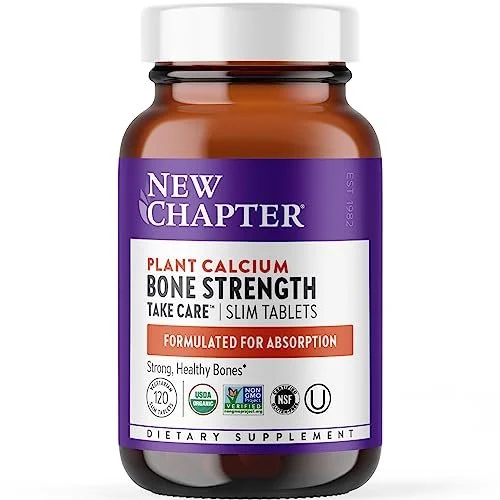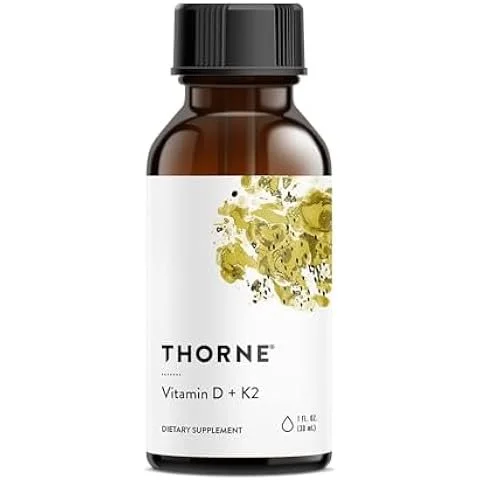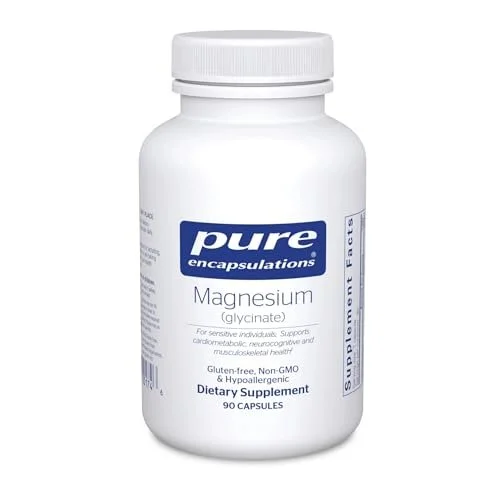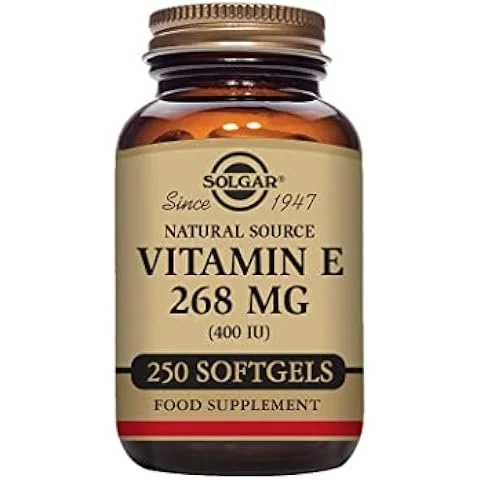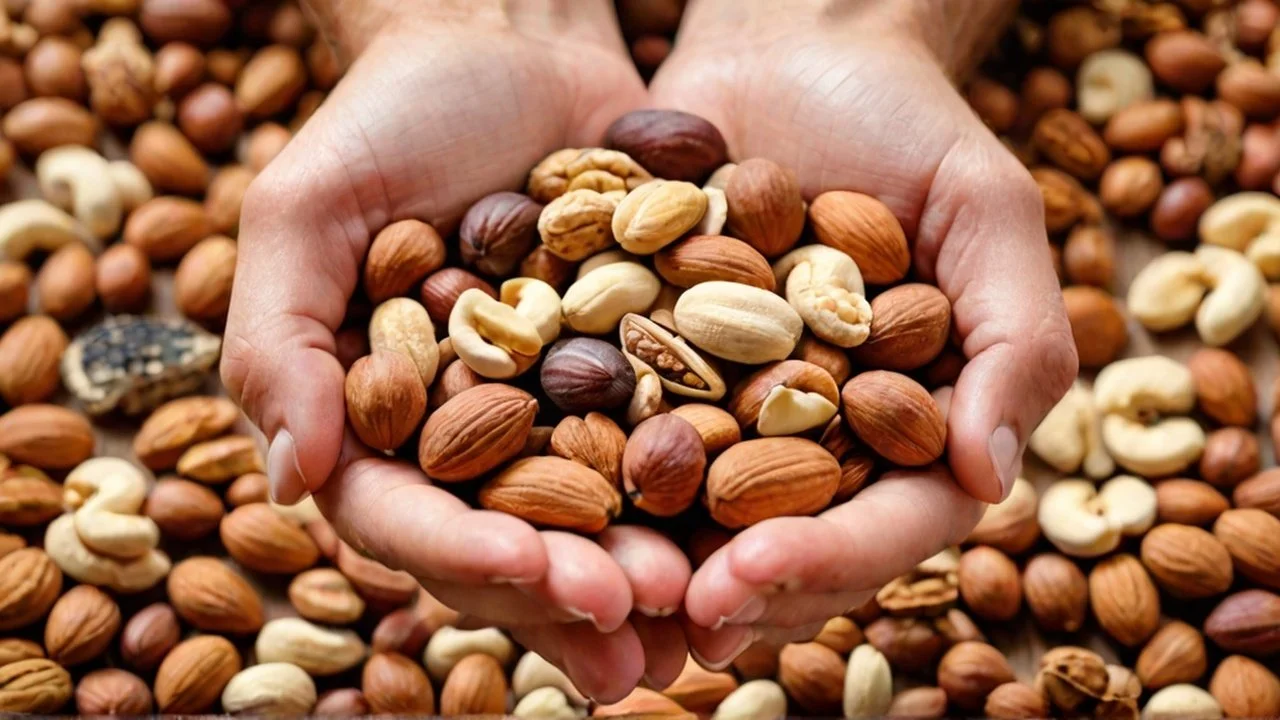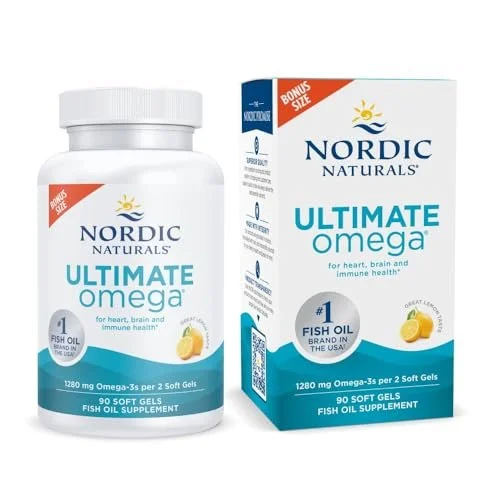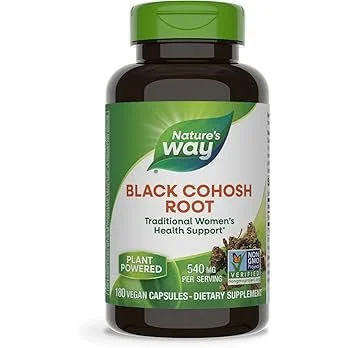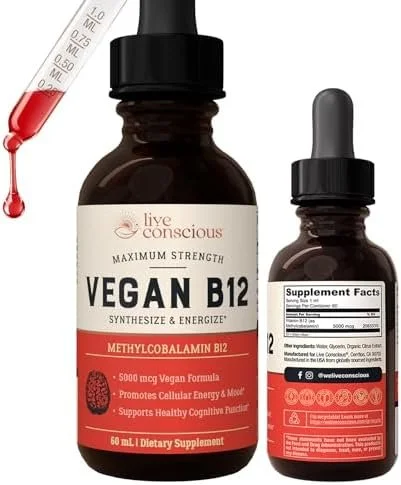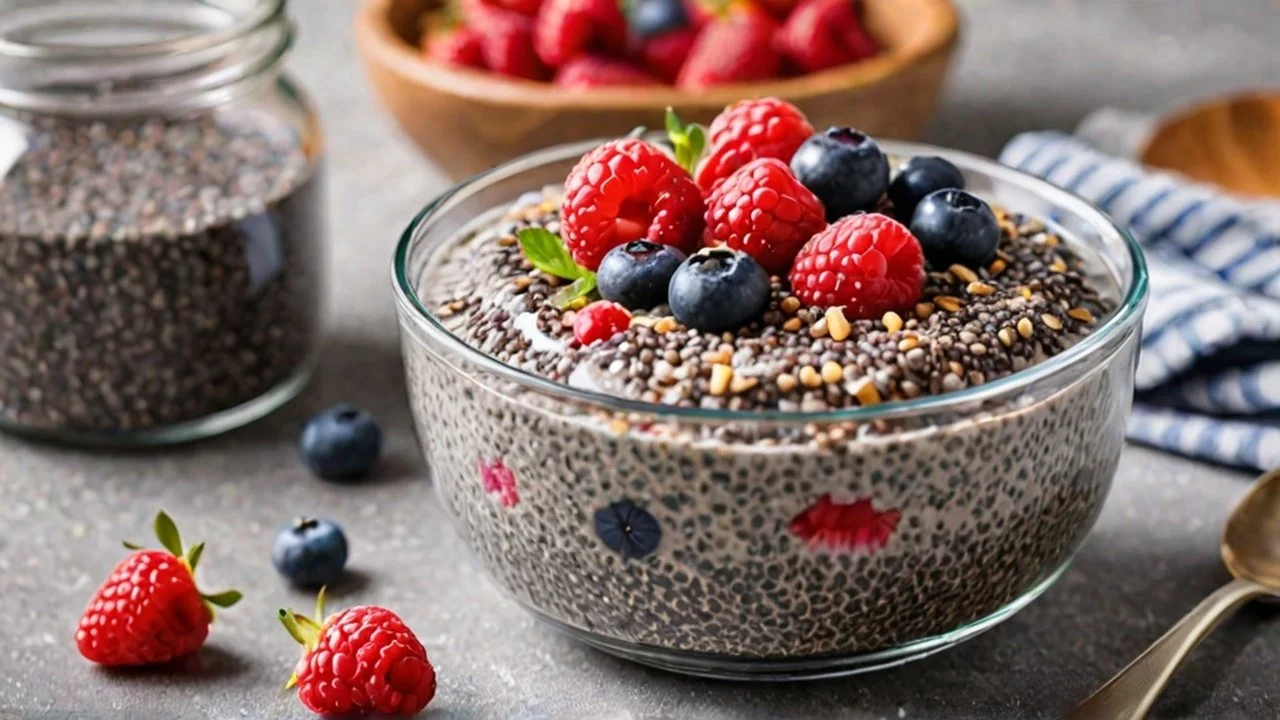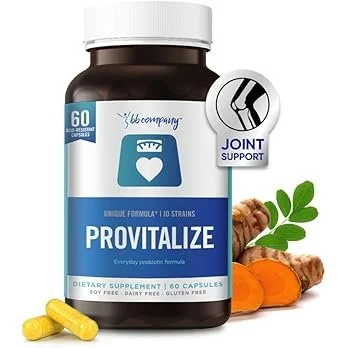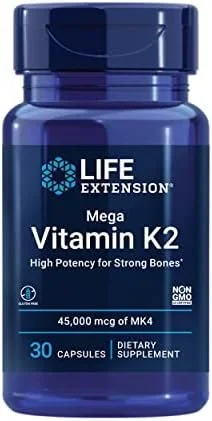13 SUPPLEMENTS THAT PREVENT MENOPAUSAL SYMPTOMS!!
Let's dive into managing menopause with the power of supplements! Menopause is like a club you didn’t sign up for but now have a lifetime membership to—complete with the occasional night sweat and mood swing. But fear not, there are supplements that can help manage those symptoms and make this life stage a bit smoother. Here's a detailed look at 12 of the best vitamins, minerals, and supplements that will be your new BFFs during menopause.
Vitamin A
Vitamin A plays a significant role in supporting overall health during menopause, particularly by helping manage some of the symptoms associated with this transition. While not a direct treatment for menopausal symptoms, vitamin A's functions can contribute to improving the general well-being of women going through menopause.
1. Skin Health
As women age, declining estrogen levels can lead to changes in skin texture, dryness, and the appearance of wrinkles. Vitamin A is crucial for skin health because it supports the production of new skin cells and regulates sebum (natural oil) production. Retinoids, a form of vitamin A, are widely used in skincare products to treat wrinkles and aging skin, helping to maintain elasticity and reduce fine lines. By promoting cell turnover, vitamin A may help menopausal women maintain healthier, more youthful skin.
2. Bone Health
Bone loss accelerates during menopause due to decreased estrogen levels, increasing the risk of osteoporosis. Vitamin A, particularly in its active form retinoic acid, plays a role in bone remodeling—a process where old bone tissue is replaced by new bone tissue. However, it's important to note that too much vitamin A, especially in the form of retinol, may negatively affect bone density. Therefore, maintaining a balanced intake of vitamin A (preferably from food sources like vegetables high in beta-carotene, which the body converts into vitamin A) can support bone health in conjunction with other essential nutrients like calcium and vitamin D.
3. Immune System Support
During menopause, some women experience a decline in immune function, which can make them more susceptible to infections. Vitamin A is essential for maintaining the integrity of the mucous membranes in the respiratory and gastrointestinal tracts, which act as barriers against infections. It also helps regulate immune responses and support the production of white blood cells, which fight off pathogens. Strengthening the immune system can help menopausal women avoid infections that may exacerbate fatigue or other symptoms.
4. Vision and Eye Health
Some menopausal women report changes in vision or dry eyes. Vitamin A is known for its role in maintaining good vision, especially in low-light conditions, by helping the retina function properly. It also supports the production of moisture in the eyes, preventing dryness, which can become more common during menopause due to hormonal changes.
5. Antioxidant Properties
Vitamin A is a powerful antioxidant, particularly in its precursor form, beta-carotene. Antioxidants help combat oxidative stress, which can increase during menopause and contribute to aging and inflammatory conditions. By neutralizing free radicals, vitamin A may help reduce the risk of chronic diseases such as cardiovascular disease, which tends to increase after menopause due to lower estrogen levels. Additionally, reducing oxidative stress may help alleviate fatigue, a common symptom of menopause.
6. Reproductive and Vaginal Health
Although vitamin A is not directly linked to the hormonal imbalances of menopause, it plays a role in the maintenance of epithelial tissues, including the vaginal lining. Some women experience vaginal dryness or thinning of the vaginal walls due to reduced estrogen during menopause. Adequate vitamin A can help maintain healthy epithelial tissues, potentially easing discomfort related to vaginal dryness and reducing the risk of infections in the vaginal area.
7. Mood and Cognitive Function
Mood swings, anxiety, and depression are common during menopause due to fluctuating hormone levels. While vitamin A is not typically the first nutrient thought of for mood regulation, its role in brain health is significant. It is involved in the production of neurotransmitters, such as dopamine, which affect mood and cognitive function. Sufficient levels of vitamin A may support a better mood and help menopausal women deal with cognitive challenges like brain fog.
While vitamin A alone is not a treatment for menopause, it supports various physiological functions that can help alleviate some of the discomfort associated with this stage of life. A balanced intake, primarily through a diet rich in fruits and vegetables like carrots, sweet potatoes, and leafy greens, can help menopausal women maintain skin health, support immune function, and potentially mitigate the risk of osteoporosis. However, it’s essential to avoid excessive vitamin A intake, especially from supplements, to prevent adverse effects, particularly on bone health. Always consult a healthcare provider before making significant changes to vitamin intake during menopause.
2. Calcium – The Bone Builder
Calcium plays a crucial role in mitigating certain symptoms associated with menopause, particularly in relation to bone health, but its effects go beyond just bones. Here’s an in-depth look at how calcium helps in menopausal symptom relief:
1. Bone Health and Osteoporosis Prevention
One of the most well-known impacts of menopause is the decline in estrogen levels, which directly affects bone density. Estrogen helps to protect bones, and its reduction during menopause leads to an accelerated rate of bone loss. This increases the risk of osteoporosis—a condition characterized by weak, brittle bones that are more prone to fractures.
Calcium’s Role:
Calcium is a critical component of bone tissue. Throughout life, bones undergo constant remodeling—breaking down old bone and forming new bone. During menopause, bone breakdown (resorption) exceeds bone formation, leading to bone thinning.
Adequate calcium intake helps to slow this process, providing the raw material necessary for bone strength and maintenance. It helps ensure that, even with the hormonal changes, the bones have enough calcium to maintain their density and reduce the risk of fractures.
Recommendation: Post-menopausal women are often advised to increase their calcium intake to around 1,200-1,500 mg per day to support bone health, typically through both diet and supplements.
2. Muscle Function and Cramps
Menopausal women may experience muscle cramps, stiffness, or aches due to changes in muscle tone and fluid balance influenced by hormone levels. Calcium plays a significant role in muscle contraction and relaxation. Insufficient calcium levels can lead to muscle spasms and cramps, which can be worsened by the hormone fluctuations seen in menopause.
Calcium’s Role:
Adequate calcium levels help regulate muscle function, reducing the risk of painful cramps or spasms, especially in the legs or feet, which are common during menopause.
3. Heart Health and Blood Pressure Regulation
Menopause is associated with an increased risk of cardiovascular problems due to decreased estrogen levels, which affect the elasticity of blood vessels and the regulation of cholesterol levels. Some women may experience changes in blood pressure and an increased risk of heart disease.
Calcium’s Role:
Calcium is essential for regulating vascular function. It helps control the contraction and relaxation of blood vessels, which influences blood pressure.
Some studies suggest that calcium, along with magnesium and vitamin D, can help maintain healthy blood pressure levels, reducing the risk of hypertension, which becomes more prevalent after menopause.
4. Mood Regulation and Sleep
While calcium is not a direct treatment for menopausal mood swings or insomnia, it plays an indirect role in promoting mental well-being by supporting neurotransmitter function and sleep regulation.
Calcium’s Role:
Calcium is involved in the production of melatonin, a hormone that regulates the sleep-wake cycle. Poor sleep is a common complaint among menopausal women, often due to night sweats, anxiety, and hormonal changes. By contributing to melatonin synthesis, calcium may help improve sleep quality.
Calcium also aids in the transmission of nerve impulses, which can help stabilize mood. Low levels of calcium can lead to symptoms such as irritability, anxiety, and depression, all of which can worsen during menopause.
5. Hot Flashes and Night Sweats
Hot flashes and night sweats are among the most uncomfortable symptoms of menopause. While calcium itself doesn't directly reduce hot flashes, it is often included in supplements that aim to relieve this symptom, typically combined with vitamin D and other minerals.
Calcium’s Role:
Calcium helps maintain overall physical health and can assist in minimizing the discomfort that comes with these sudden changes in body temperature. Some studies indicate that calcium, when combined with vitamin D, might slightly reduce the severity or frequency of hot flashes, although more research is needed.
6. Joint Health and Inflammation
Joint pain or stiffness can occur during menopause due to estrogen loss, which has anti-inflammatory properties. Without enough estrogen, joints may become more inflamed and painful.
Calcium’s Role:
Calcium can help support joint function, especially when taken alongside other nutrients like vitamin D and magnesium. While it doesn’t directly reduce inflammation, calcium supports the maintenance of cartilage and bone tissue around the joints, helping alleviate some of the discomfort associated with menopausal joint pain.
7. Supporting Metabolism and Weight Management
During menopause, changes in metabolism can lead to weight gain, particularly around the abdomen. This is partly due to decreased estrogen levels but also related to a slower metabolic rate and changes in insulin sensitivity.
Calcium’s Role:
Some studies suggest that calcium, especially when combined with vitamin D, might assist in fat metabolism and weight management. It has been proposed that calcium helps reduce the amount of fat the body absorbs from the diet and can potentially stimulate the breakdown of fat cells, although these effects are subtle and still under investigation.
Optimal Use of Calcium During Menopause
For calcium to be most effective during menopause, certain guidelines should be followed:
Pair with Vitamin D: Vitamin D is essential for calcium absorption. Without sufficient vitamin D, calcium supplementation can be less effective, and the risk of osteoporosis may not be fully addressed.
Timing of Supplementation: Calcium supplements are best taken in smaller doses (500 mg or less) throughout the day, as the body absorbs smaller amounts more efficiently.
Calcium-Rich Foods: In addition to supplements, menopausal women should aim to get calcium from dietary sources such as dairy products (milk, yogurt, cheese), leafy green vegetables (kale, broccoli), fortified plant milks, and fish like sardines and salmon with bones.
Calcium plays a vital role in managing several aspects of menopausal symptoms, especially those related to bone health, muscle function, heart health, and even mood regulation. While it is not a cure-all, ensuring adequate calcium intake—through both diet and supplementation—can help alleviate some of the physical changes and risks associated with menopause, promoting overall well-being during this transition.
With menopause, estrogen levels drop, and bones are like, "Peace out!" leading to a greater risk of osteoporosis. Calcium is your go-to for keeping those bones strong and unbreakable. Think of it as the reinforcements that help you keep standing tall—literally.
Benefits:
Supports muscle function (so you can keep power walking like a boss).
Where to Find It: Dairy products, fortified plant milk, leafy greens, and of course, supplements.
3. Vitamin D – The Sunshine Vitamin
Sure! Let’s dive into how vitamin D helps with menopausal symptoms, with a bit of humor to brighten things up!
1. Bone Health – “Hold It Together!”
During menopause, your bones start acting like that IKEA furniture you never assembled quite right. They get wobbly! With estrogen on a permanent vacation, your bone density takes a hit, and suddenly, you’re walking around like a stack of Jenga blocks. Enter Vitamin D, your body’s equivalent of duct tape for bones! It helps you absorb calcium, strengthens those skeleton parts, and keeps you from feeling like a walking game of "How Many Steps Until I Break Something?" With enough Vitamin D, you’ll stay upright and intact—ready for a long, groan-free stretch!
2. Mood – “Hormones Gone Wild”
Menopause can turn you into an emotional rollercoaster—one minute you're laughing at cat videos, and the next you’re crying because the dishwasher didn’t load itself. Estrogen, the hormone responsible for keeping things smooth, dips, leaving your mood flapping in the wind like a loose kite.
That’s where Vitamin D swoops in, the mood-stabilizer we didn’t know we needed! Known to boost serotonin, aka your brain's “happy juice,” Vitamin D helps keep those mood swings in check. So next time you feel like biting someone's head off because they used your coffee mug, a little sunshine vitamin might just help you laugh it off instead. Who knew a vitamin could help you avoid becoming a full-time villain?
3. Muscle Pain – “Achy Breaky Everything”
Menopause can make your muscles feel like they’ve gone on strike—everything’s stiff, sore, or just plain creaky. It’s like you’ve suddenly aged 40 years overnight, and your muscles are sending you constant complaint emails. They need reinforcements!
Vitamin D to the rescue again! It’s like your muscles' personal assistant, keeping them from going into early retirement. It tells them, “Hey, you’ve got work to do!” By helping improve muscle strength and reducing pain, Vitamin D makes sure you’re not hobbling around like you need a walker just because you got out of bed too fast.
4. Hot Flashes – “Power Surge!”
Let’s not forget the real menopausal party-crasher: hot flashes. These little fiery episodes make you feel like you’re constantly stuck in a broken sauna. Now, Vitamin D may not be able to turn off that internal furnace (sorry, it’s not a miracle worker!), but keeping your body in balance can help you weather the storm a little easier. Think of it as emotional SPF for when your brain's thermostat goes haywire!
So, whether you’re trying to keep your bones sturdy, your mood manageable, or just avoid feeling like you’ve run a marathon when all you did was walk to the kitchen, Vitamin D is like that trusty sidekick you didn’t know you needed.
Since menopause can lead to brittle bones, Vitamin D and calcium are the dynamic duo you need to keep osteoporosis at bay. Plus, it’s a mood booster—because who couldn’t use some sunshine, even in pill form?
Benefits:
Helps your body absorb calcium.
Boosts mood and fights the menopause blues.
Where to Find It: Sunlight, fortified foods, and supplements (because let’s face it, we’re not all sunbathing daily).
4. Magnesium – The Sleep Smoother
Magnesium is the unsung hero of the menopause squad—a little mineral with big potential to help women tackle some of those pesky menopausal symptoms like hot flashes, sleep disturbances, mood swings, and even those random moments of "Why did I walk into this room again?"
First, let's talk about hot flashes—those sudden bursts of internal heat that can turn a casual afternoon into a sauna session. Picture magnesium as your personal "cool-down" coach, whispering sweet nothings to your nervous system, helping to regulate your body’s thermostat. Sure, it’s not a magic wand that makes the flashes disappear completely, but it can dial down the intensity, kind of like moving from a full-on furnace to just simmering a bit—think “mild salsa” instead of “extra hot.”
Then there's the sleep thing. Menopause can turn what used to be a blissful eight-hour snooze into a series of disjointed naps interrupted by random wake-ups and the occasional urge to rethink your entire life at 3 a.m. Enter magnesium, your bedtime buddy. It’s like that friend who hands you a warm blanket and says, “Don’t worry, I got this.” Magnesium helps relax your muscles and calm your nervous system, setting the stage for some quality shut-eye. It’s the mineral equivalent of a lullaby sung by a cozy cup of chamomile tea.
Now, let’s talk mood swings. One minute, you’re fine, and the next, you’re tearing up over a coffee commercial. Hormones, of course, play a big role in this rollercoaster, but magnesium can act as a buffer. It helps regulate serotonin, that feel-good chemical in your brain. Think of magnesium as the calm, rational friend who talks you down when you’re on the verge of ugly crying in the grocery store because they’re out of your favorite ice cream flavor.
Finally, let’s not forget brain fog—that fun little phenomenon where you can’t quite remember where you put your keys, or why you’re holding a frying pan in the bathroom. Magnesium works behind the scenes to keep your brain firing on all cylinders. It helps with cognitive function, memory, and focus, so you spend less time thinking, "Wait, what was I just doing?"
So, in short, magnesium is like your menopause survival kit in a tiny mineral form. It's the cool-down coach, the bedtime buddy, the emotional bodyguard, and the mental fog buster. If menopause is the wild jungle, magnesium is the multi-tool that keeps you just a little bit more prepared for whatever swings your way—literally and figuratively.
Menopause likes to play with your sleep patterns, doesn’t it? Cue magnesium, the mineral that’ll help you drift off without a care. It’s the ultimate chill pill, promoting relaxation and restful sleep, while also reducing muscle cramps and tension.
Benefits:
Aids in better sleep (bye-bye insomnia).
Helps with muscle relaxation and reduces cramps.
Where to Find It: Nuts, seeds, whole grains, and dark chocolate (yes, that’s right—chocolate!).
5. Vitamin E – The Hot Flash Tamer
Hot Flashes Be Gone!
Hot flashes? No, thank you. Vitamin E is like your personal cooling system. While it won’t banish them completely, it can help reduce the frequency and intensity of those surprise heat waves. Why Vitamin E is the Unsung Hero of Menopause (And Why You'll Love It)Menopause—AKA the hormonal rollercoaster that life throws your way, just when you thought you'd seen it all. Hot flashes, night sweats, mood swings, and brain fog—basically, your body’s way of saying, "Let’s shake things up!" But here's where Vitamin E swoops in like a superhero in a cape—well, a little pill-sized one anyway.
Hot flashes? More like tropical storms erupting from within. But fear not, Vitamin E is here! Think of it as your body's internal air conditioner. Studies have shown that taking Vitamin E can reduce both the frequency and intensity of hot flashes. Imagine walking into a sweltering room, and instead of feeling like a furnace, you’re breezing through it like you’ve got your own personal fan. Cool as a cucumber? More like cool as a cucumber with Vitamin E!
2. Goodbye Dry Skin
Menopause can sometimes turn your skin into the Sahara Desert. Dry, itchy, and just generally thirsty. Vitamin E, being a powerful antioxidant, helps repair skin tissue and lock in moisture. It’s basically a spa day for your cells. So while your hormones may try to dry you out, Vitamin E’s there with a hydrating face mask and a promise of smoother, softer skin. In other words, you’ll be glowing like a well-moisturized goddess (minus the sweat).
3. Brain Fog Lift-Off
You’re in the middle of a conversation and suddenly… what were we talking about again? Menopause can sometimes turn your brain into a scrambled egg. Vitamin E, with its cell-protecting powers, helps improve cognitive function by supporting brain health. It’s like giving your brain a cup of coffee without the jitters. So, next time you walk into a room and forget why you're there—Vitamin E might just be the memory booster you need to avoid that classic menopausal brain freeze.
4. Mood Swings on Mute
Feeling like you're stuck in a whirlwind of emotions, where one minute you're laughing, and the next you’re ready to throw a toaster out the window? Vitamin E helps regulate hormones, which can calm the emotional storm. It’s like hiring a chill bouncer for your brain—keeping the hormonal party in check so things don’t get too out of hand. Thanks to Vitamin E, you can spend more time laughing with your toaster instead of at it.
5. Sleep Like a Baby
Menopause: Where 3 AM is suddenly a great time to ponder the mysteries of life. But no more! Vitamin E helps regulate hormones like estrogen and progesterone, which in turn can help improve sleep quality. So instead of tossing and turning, you'll be snoozing like it’s your full-time job. Think of Vitamin E as a gentle lullaby in a bottle—without the off-key singing.
So, What’s the Verdict?
Vitamin E may not be able to turn back the clock, but it can sure make menopause feel more like a breezy jog rather than a marathon uphill. With benefits like fewer hot flashes, glowing skin, better sleep, and less hormonal havoc, Vitamin E is basically the BFF you didn’t know you needed.Grab some Vitamin E, smile through the sweats, and remember—you've got this! (And Vitamin E has got your back).
Benefits:
Helps reduce hot flashes.
Supports skin health (so your glow doesn’t quit).
Where to Find It: Nuts, seeds, and—you guessed it—supplements!
6. Omega-3 Fatty Acids – The Mood Balancer, Your Menopause Wingmen.
Menopause isn’t just about physical symptoms. Mood swings can be a rollercoaster ride, but omega-3s can help smooth out the bumps. Found in fish oil, these fatty acids are great for heart health and act like a buffer for your mental wellness.
Omega-3s and Menopausal Symptom Relief: Fish Oil to the Rescue!
Menopause, that magical time of life when your hormones decide to throw a farewell party and invite every discomfort imaginable—hot flashes, mood swings, joint pain, and the grand finale, sleepless nights. It's as if your body becomes a theme park, except the rides are terrible and there's no funnel cake. But fear not, for in the sea of menopausal woes, there swims a superhero: omega-3 fatty acids!
These little fatty acids (from fish, no less) are like the Avengers for your body—on a mission to save you from the havoc that menopause wreaks. Let's dive into the quirky, fin-tastic ways omega-3s can help you keep your cool during menopause, and why they're worth including in your toolkit.
What Are Omega-3 Fatty Acids? (And Why Should You Care?)
Omega-3s are like those friends who show up when you need them most—calm, supportive, and slightly fishy (we’ll get to that part). They're essential fatty acids that your body cannot make on its own. This means you have to get them from food or supplements. Think of them as the much-needed reinforcements for your menopausal battle.
The three main types are:
EPA (Eicosapentaenoic acid): Found mostly in fish oils. EPA is like the bodyguard—tackling inflammation before it can make things worse.
DHA (Docosahexaenoic acid): Also from fish oils, DHA is the brainiac of the group, keeping your mind sharp when menopause makes you feel like you’ve lost your car keys for the fifth time today.
ALA (Alpha-linolenic acid): Found in plants like flaxseed and chia seeds, ALA tries its best but often needs a little help from EPA and DHA to really get things done.
Omega-3s vs. Menopausal Symptoms: Let the Battle Begin!
1. Hot Flashes: Cool Down, Not Burn Up
Hot flashes are the menopause mascot. Out of nowhere, you’re sweating like you're in a sauna but stuck in a meeting. Enter omega-3s, particularly EPA and DHA, which studies suggest may help reduce the frequency and intensity of hot flashes. It’s like they’ve handed your internal thermostat the remote control.
Not only do omega-3s help reduce inflammation (which can worsen hot flashes), but they also have an overall cooling effect. So, next time you feel that sudden wave of heat, imagine a school of tiny fish blowing on your forehead like a personal fan.
2. Mood Swings: From “Why Am I Crying?” to “I’ve Got This!”
Mood swings during menopause can feel like you’re on a roller coaster designed by someone who’s never heard of safety regulations. One minute you’re happy, the next you’re crying because the toast is slightly burnt.
Omega-3s, especially DHA, are known for supporting brain health and helping regulate mood. They boost serotonin, the "feel-good" hormone, and can help smooth out those emotional ups and downs. Think of DHA as your emotional life jacket—it keeps you afloat when your hormones try to pull you under.
3. Joint Pain: Fish Oil to the Flexy Rescue
As if the hot flashes weren’t enough, menopause sometimes brings joint pain, making you feel like a rusty robot trying to move. Omega-3s are famous for their anti-inflammatory superpowers, making them an excellent ally in reducing joint pain and stiffness. EPA comes in like a well-oiled machine, lubricating those joints and getting you moving with less creaking and cracking.
So, while menopause might make you feel like the Tin Man, omega-3s are your can of oil, letting you bend, stretch, and groove without sounding like a haunted house door.
4. Sleep Troubles: From Tossing and Turning to Snoozing Like a Fish
Menopause often turns bedtime into a game of "Will I Sleep Tonight?" Spoiler: without some help, you probably won’t. Between hot flashes, night sweats, and anxiety, sleep can feel elusive.
Studies suggest that omega-3s, particularly DHA, can improve sleep quality, helping you snooze like a baby... or maybe like a fish, calmly floating along. Omega-3s help regulate melatonin, the hormone that controls your sleep-wake cycle, so you can kiss those restless nights goodbye (or at least goodnight).
How to Get Your Omega-3 Fix: Fishy Friends and Plant Power
So, how do you make omega-3s your menopausal sidekick? Here’s where they hang out:
Fatty fish like salmon, mackerel, sardines, and anchovies. Think of them as your go-to fish squad, always ready to jump in and save the day.
Flaxseeds, chia seeds, and walnuts for a plant-based omega-3 boost. Perfect if you want to sprinkle some ALA magic on your morning smoothie or salad.
Omega-3 supplements, usually in the form of fish oil or algae oil, for an easy way to get your daily dose without overhauling your diet. Just pop a capsule and imagine the fish cheering you on.
Menopause may try to throw curveballs your way, but omega-3s are here to help you knock them out of the park. From taming hot flashes to boosting your mood, easing joint pain, and helping you sleep, these fatty acids are the fishy little helpers you never knew you needed.
So, next time you’re feeling the menopausal heat, just remember: somewhere, out there, a school of omega-3-packed salmon is cheering for you to power through this phase like the fierce, fabulous woman you are.
Benefits:
Improves mood and reduces irritability (saving you from snapping at that slow barista).
Supports heart health, which is important post-menopause.
Where to Find It: Fatty fish (like salmon), flaxseeds, and fish oil supplements.
7. Black Cohosh – The Ancient Secret
Black cohosh has been used for centuries by Native Americans to ease menopause symptoms, particularly hot flashes and night sweats. Think of it as a natural way to tell your body, “Cool it, already!”
Black Cohosh for Menopausal Symptom Relief: A Comprehensive Guide
Black cohosh (Actaea racemosa), a plant native to North America, has been used for centuries as a traditional remedy, particularly by Native Americans, to treat various conditions such as menstrual irregularities and menopause-related symptoms. In modern times, it has gained attention as a natural alternative for alleviating menopausal discomforts like hot flashes, night sweats, mood swings, and more. This article explores the benefits of black cohosh, its effectiveness, and how it can help with menopausal symptoms.
What is Black Cohosh?
Black cohosh is a flowering plant in the buttercup family that grows primarily in eastern North America. The root and rhizome (underground stem) of the plant are used to make herbal supplements in various forms, including capsules, tablets, and tinctures. Its active compounds, particularly triterpene glycosides (such as actein), are believed to be responsible for its medicinal properties.
How Does Black Cohosh Work?
The exact mechanisms by which black cohosh works to relieve menopausal symptoms aren't entirely understood, but several theories exist:
Phytoestrogenic Effects (Disputed): Black cohosh was initially thought to act as a phytoestrogen—plant-based compounds that mimic estrogen. However, more recent research indicates that it does not directly stimulate estrogen receptors. Instead, it may work through non-estrogenic pathways, making it safer for women who are at risk for hormone-sensitive conditions, such as breast cancer.
Serotonin Modulation: Black cohosh may influence serotonin receptors, which are involved in regulating mood, sleep, and body temperature. Since serotonin levels can fluctuate during menopause, this could explain why black cohosh helps alleviate hot flashes and mood swings.
Anti-inflammatory Effects: Some studies suggest black cohosh has anti-inflammatory properties, which might contribute to its ability to reduce muscle pain, headaches, and other discomforts that some women experience during menopause.
Key Benefits of Black Cohhosh for Menopausal Symptoms
Reduces Hot Flashes and Night Sweats
One of the most common and uncomfortable symptoms of menopause is hot flashes—sudden, intense feelings of heat, often accompanied by sweating and a flushed face. Research indicates that black cohosh may help reduce the frequency and severity of hot flashes. Several clinical trials have shown improvements in women who took black cohosh supplements for 6 to 12 weeks.
A 2010 review published in Menopause found that black cohosh significantly reduced hot flashes compared to a placebo. The herb seems particularly effective for women with moderate to severe symptoms.
Improves Mood and Reduces Anxiety
Menopause often brings emotional changes, such as mood swings, irritability, and even mild depression or anxiety. Some women report improvements in their emotional well-being when taking black cohosh. Its potential to modulate serotonin activity may help stabilize mood swings and reduce feelings of anxiety.
A study published in the Journal of Women's Health found that black cohosh significantly improved mood and reduced anxiety in menopausal women compared to those on a placebo.
Supports Better Sleep
Night sweats, anxiety, and mood changes can lead to disrupted sleep during menopause. By reducing night sweats and calming the nervous system, black cohosh may help women get more restful sleep. In some cases, women who took black cohosh supplements reported better sleep quality and fewer disruptions at night.
Eases Vaginal Dryness and Pain
Vaginal dryness, irritation, and discomfort during intercourse can also occur during menopause due to declining estrogen levels. Although the evidence is less robust than for hot flashes, some women experience relief from vaginal dryness and discomfort when using black cohosh, likely due to its ability to mimic some of estrogen's effects without being a true estrogen.
Reduces Joint and Muscle Pain
As menopause progresses, some women experience joint and muscle pain, possibly due to estrogen deficiency. Black cohosh’s anti-inflammatory properties may help reduce this type of discomfort. Some studies suggest it can be helpful for women who experience musculoskeletal pain or stiffness during menopause.
Research on Black Cohosh and Safety
While many women report benefits from black cohosh, its effectiveness can vary from person to person. Not all studies show conclusive results, but a substantial number of trials suggest it can be beneficial, particularly for hot flashes and mood-related symptoms.
When it comes to safety, black cohosh is generally considered safe for short-term use, typically up to six months, according to the National Institutes of Health (NIH). However, there are some concerns about long-term use and possible liver toxicity. It is important to note that while cases of liver damage linked to black cohosh are rare, they have been reported. Women with liver disorders should avoid this supplement, and anyone taking it should be mindful of any signs of liver trouble, such as yellowing of the skin or eyes, fatigue, or dark urine.
Dosage and How to Use Black Cohosh
There is no standardized dosage of black cohosh, but most studies on menopausal symptoms have used doses of 20–40 mg of standardized extract daily. It is available in various forms, including:
Capsules/Tablets: These are the most common and convenient forms, often standardized to contain specific amounts of active compounds.
Tinctures and Liquid Extracts: These can be added to water or juice and may be a better option for those who have trouble swallowing pills.
It's essential to follow the manufacturer's guidelines or consult with a healthcare provider to determine the right dose for your individual needs.
Who Should Avoid Black Cohosh?
While black cohosh is considered relatively safe for most women, certain individuals should avoid it or use it cautiously:
Women with Liver Disorders: As mentioned, there is a potential risk of liver damage, so women with existing liver conditions should avoid black cohosh.
Breast Cancer Survivors or Women at High Risk: While black cohosh is not a phytoestrogen, its effects on estrogen-sensitive tissues are still being studied. Women with a history of breast cancer should consult their doctor before using black cohosh.
Pregnant or Nursing Women: Black cohosh can stimulate uterine contractions and should be avoided during pregnancy or breastfeeding.
Women Taking Hormone Replacement Therapy (HRT): Since black cohosh may interact with hormone treatments, it’s important to consult with a healthcare provider if you’re on HRT or other hormonal medications.
Conclusion
Black cohosh offers a natural, plant-based alternative for relieving some of the uncomfortable symptoms of menopause, including hot flashes, mood swings, and sleep disturbances. While not a cure-all, it can be an effective part of a holistic approach to managing menopause, especially for women seeking alternatives to hormone replacement therapy.
However, as with any supplement, it's crucial to use black cohosh cautiously, particularly if you have underlying health concerns. Always consult with your healthcare provider before beginning any new treatment, especially if you are on other medications or have a medical condition.
For many women, black cohosh provides a well-tolerated and natural solution to the challenges of menopause, allowing them to reclaim comfort and balance during this life transition.
Benefits:
Eases hot flashes and night sweats.
Supports hormonal balance naturally.
Where to Find It: Available in capsule or tea form at your local health store.
8. B Vitamins – The Energy Lifeline
Vitamin B12 and 6 are essential for maintaining nerve function, cognitive health, and energy levels, all of which can be impacted by menopause. Here's a deeper dive into how vitamin B’s supports menopausal women:
Energy levels and fatigue: One of the common symptoms of menopause is fatigue. Vitamin B’s plays a crucial role in the production of red blood cells and energy metabolism. Insufficient levels can lead to fatigue, weakness, and even anemia.
Cognitive health: Menopause can lead to brain fog and memory issues. Vitamin B12 helps maintain healthy brain function by supporting nerve cell health and DNA production, which may help reduce cognitive decline.
Mood and mental health: Many women experience mood swings or even depression during menopause due to hormonal shifts. Vitamin B12 is involved in the production of neurotransmitters like serotonin, which helps regulate mood. Low levels of B12 are often linked to anxiety, irritability, and depression, making it important for emotional well-being during menopause.
Cardiovascular protection: Vitamin B12 helps lower homocysteine levels in the blood. High homocysteine is a risk factor for cardiovascular disease, which becomes more of a concern after menopause due to the protective effects of estrogen diminishing.
Ensuring adequate intake of both vitamin K and vitamin B’s through diet or supplementation may help alleviate some menopausal symptoms, particularly those related to bone health, energy, mood, and cognitive function.
Feeling sluggish? The B vitamins are here to save the day. These powerhouses help convert food into energy, so you can get through the day without needing a nap by 2 PM. They also support brain function and help reduce mood swings.
Benefits:
Boosts energy levels.
Supports brain health and mood regulation (keeping you from crying over dog commercials).
Where to Find It: Whole grains, meat, and supplements—especially B6 and B12.
9. Probiotics – The Gut Guru
Hormonal changes can mess with your gut health, leading to bloating and other digestive issues. Probiotics help keep your digestive system balanced, and since your immune system takes a hit during menopause, they also give that a nice little boost.
Menopause: that magical time when your body decides it's had enough of all that monthly nonsense and shifts into a new era. But let’s be real—menopause isn’t a peaceful transition into wisdom and serenity. It’s more like riding a rollercoaster where the seatbelt is loose, and someone keeps throwing hot flashes at your face. Your mood swings could give a pendulum whiplash, and sleep? Forget about it. You’re either lying awake counting the ceiling tiles or being woken up by a night sweat that feels like you’re marinating in your own personal sauna.
Enter probiotics, the tiny little bacteria with the potential to be your new best friends during menopause. You may have heard that probiotics are good for gut health, but let’s dive into how they can help with menopause. Because if anyone needs a good friend during this hormonal chaos, it’s you.
1. Balancing the Gut = Balancing the Mood
During menopause, your hormones are doing the tango—badly. Estrogen levels plummet, and with that comes mood swings, irritability, and feeling like a complete alien in your own body. Well, here's the thing: your gut and brain are besties, and their BFF relationship is called the "gut-brain axis." Probiotics help keep your gut flora (the bacteria party happening in your intestines) balanced, which in turn can positively affect your mood. So, instead of feeling like you're starring in an emotional soap opera 24/7, probiotics can help you feel a bit more zen and a little less like snapping at the mailman for ringing the doorbell twice.
2. Tackling the Weight Gain Struggle
One day, you’re eating a salad, the next you’re trying to figure out how you gained 5 pounds overnight. Welcome to menopausal weight gain! Your metabolism slows down, and your body decides it’s time to store fat like a squirrel hoarding nuts for winter. The gut flora can influence how your body processes fat, and probiotics may help by promoting a healthy metabolism and reducing inflammation. They won't turn you into a supermodel overnight, but they might make your jeans a little more forgiving. That’s got to count for something, right?
3. Hot Flashes, Meet Cool Probiotics
You know those delightful hot flashes that feel like you’re melting from the inside out? Yeah, probiotics aren’t going to toss ice cubes at you, but they can help regulate your body’s temperature control systems. Research suggests that a healthy gut can lead to better overall hormonal regulation, which might help reduce the severity of those sweat-inducing moments. It’s like they’re dialing down the internal furnace just a bit. Small wins, but we'll take them!
4. Better Sleep Without the Midnight Sweats
When you’re waking up in a pool of sweat, your body isn’t getting the rest it needs to cope with, well, everything. Probiotics have been shown to improve sleep quality, thanks to their role in producing serotonin, which is a precursor to melatonin—your sleep hormone. So, instead of tossing and turning all night like you’re on a weird heatwave surfboard, probiotics might help you sleep soundly, dream sweetly, and maybe even wake up without feeling like you fought a pillow battle all night.
5. Vaginal Health - Because We’ve Got to Talk About It
Menopause doesn’t just mess with your mood and metabolism; it also has an unwelcome effect on vaginal health. Reduced estrogen can lead to dryness and discomfort (yay, more fun surprises!). Probiotics can help restore balance to your vaginal microbiome, reducing the risk of infections like UTIs and keeping things… let’s say… more comfortable down there. It’s like sending a team of friendly microscopic maintenance workers to keep things running smoothly.
6. Bone Health – Because You’re Not a Walking Skeleton Yet
Probiotics may also help improve calcium absorption, which is crucial because menopause likes to mess with your bones, too. Estrogen helps protect bone density, so when estrogen levels drop, bones can become weaker, leading to osteoporosis. But don’t worry, probiotics are on the case, helping you absorb more calcium and keeping those bones from turning into brittle breadsticks.
In Conclusion:
Think of probiotics like a squad of tiny, friendly helpers working to keep your gut happy, your mood balanced, and your body functioning as smoothly as possible while you deal with the menopausal circus. They’re not magic, but they can make this wild ride a little less bumpy. And hey, anything that makes you feel a little less like a ticking time bomb of hot flashes, mood swings, and interrupted sleep is worth a try, right?
Probiotics: They may be microscopic, but they’re packing some serious menopausal relief!
Goodbye belly bloat and “pooch”. Hello, flatter tummy! Experience the thrill of pulling off the latest styles, cuts & fits. Everyone won't believe your age!
The Power Of 8 Different Supplements For The Price Of 1: Provitalize's synergistic probiotic-herb blend provides holistic support for weight management, gut health, digestive health, bloating & more
Benefits:
Supports digestion and prevents bloating.
Enhances immune function, keeping you healthy.
Where to Find It: Yogurt, fermented foods (hello, sauerkraut!), and probiotic supplements.
10. Soy Isoflavones – The Estrogen Mimic, Your Secret Weapon for Beating Hot Flashes and Feeling Fabulous!
Soy isoflavones are plant-based compounds that mimic estrogen in your body, making them a natural way to counteract the declining estrogen levels of menopause. They’re especially helpful in reducing hot flashes and night sweats.
Menopause. The time in life when your body decides to throw you the ultimate plot twist—complete with hot flashes, mood swings, and nights so sweaty, you could probably grow a rainforest in your sheets. But don’t panic! Nature has your back, and it comes in the form of soy isoflavones, those magical little plant compounds from soybeans that can help you feel more like yourself again. If you’re ready to take control and show menopause who’s boss, let’s talk about how soy isoflavones can help.
What the Heck Are Soy Isoflavones?
Imagine soybeans as tiny superheroes. Inside them are these special compounds called isoflavones, specifically genistein and daidzein (yes, they sound like wizard names, but stay with me). These are a type of phytoestrogen—basically plant-based estrogen—but don’t worry, you won’t start growing leaves. They’re just really good at imitating your body’s estrogen, which is perfect since your own estrogen levels are taking a nosedive during menopause.
So, what’s the deal? By latching onto your body’s estrogen receptors (like how we cling to a good moisturizer), soy isoflavones can help ease those symptoms that make you want to hide under the covers (sweaty as they are).
Benefits of Soy Isoflavones: Why You’ll Want Them in Your Life
Bye-Bye, Hot Flashes! Hot flashes: the sneaky little bursts of heat that strike at the worst possible times. One second you’re cool as a cucumber, and the next, you’re melting faster than ice cream in July. But don’t worry—soy isoflavones can help! These little wonders have been shown to reduce the frequency and intensity of hot flashes. In fact, some studies have found that women who consume soy or take soy isoflavone supplements have up to 50% fewer hot flashes.
Think of soy isoflavones as your personal A/C system, quietly working in the background to keep you chill—even when your body wants to crank up the thermostat. Grab that soy latte, and get ready to feel like a walking freezer section.
Mood Swings? What Mood Swings? If your emotional state during menopause could be summed up as "spinning wheel of feelings," you’re not alone. Thanks to the hormonal rollercoaster, one minute you're laughing at cat videos, and the next, you're tearing up over a detergent commercial. But soy isoflavones can help stabilize your mood, like the reliable friend who shows up with wine and tissues when you need it.
Research has shown that these little guys can improve mood and even boost cognitive function (a.k.a. help you remember where you left your phone). So, next time your brain goes foggy or you feel a mood swing coming on, know that soy isoflavones have your back.
Stronger Bones, Fewer Fractures Once menopause hits, it’s not just your patience that gets brittle—your bones can too. Estrogen helps maintain bone density, and when levels drop, you’re at risk of osteoporosis. But don’t start bubble-wrapping yourself just yet! Soy isoflavones can swoop in and help keep your bones strong.
These plant superheroes have been found to slow down bone loss and even promote bone growth. So while your friends are comparing calcium supplements, you can just casually mention that your soy isoflavones are handling business. Strong bones = fewer fractures, more dancing (or whatever other hip-swiveling activities you’re into).
Heart Health? Check! Not only does menopause mess with your body temperature, mood, and bones, but it also likes to shake things up with your cardiovascular system. Estrogen normally protects your heart, and when those levels drop, the risk of heart disease goes up. Enter soy isoflavones, ready to give your heart some love.
Studies suggest that soy isoflavones can help lower cholesterol, improve blood vessel function, and keep your heart ticking along smoothly. So, you can feel confident that while you're managing those other symptoms, your heart health isn’t being left behind in the menopausal shuffle.
How to Get Your Soy Isoflavone Fix
You might be wondering: “Okay, I’m sold, but where do I get these miracle workers?” Luckily, soy isoflavones are easy to incorporate into your diet. You can find them in:
Tofu (yes, it’s time to make peace with tofu)
Soy milk (lattes just got way healthier)
Edamame (because who doesn’t love popping those little green beans?)
Soy nuts (the crunchy snack that multitasks)
Soy isoflavone supplements (if you’re not into soy foods, no worries, there’s a pill for that)
So, Should You Give Soy Isoflavones a Try?
If you’re looking for a natural way to combat menopausal symptoms like hot flashes, mood swings, and bone loss without signing up for hormone replacement therapy (HRT), soy isoflavones could be your new BFF. They’ve got the power to help regulate your body’s estrogen levels, and studies back up their ability to make this transition a little easier.
It’s important to remember that results can vary from person to person, and it may take a few weeks for you to start feeling the benefits. But why not give them a shot? Your body will thank you, and so will your mood (and bones, and heart… you get the idea).
In the battle of you vs. menopause, soy isoflavones are like your personal sidekick, always there to make the journey smoother. So, pour yourself a soy latte, kick back, and tell menopause to bring it on. You’ve got this!
Benefits:
Reduces hot flashes and night sweats.
Supports bone and heart health.
Where to Find It: Soy products like tofu, tempeh, and supplements.
11. Vitamin C with Bioflavonoids – The Skin Saver
Vitamin C isn’t just for cold season. During menopause, skin elasticity starts to wane, but Vitamin C can help your skin stay firm and radiant. Plus, it supports your immune system, which is always a good thing when your hormones are throwing a tantrum.
Let’s get real: menopause can feel like Mother Nature’s twisted prank. One day, you're cruising along, and the next—bam! You're hot-flashing like a 90s boy band at a comeback concert, you can't sleep, and every tiny thing makes you want to either cry, scream, or both (simultaneously). But fear not, because there’s a little hero hiding in your fruit bowl: Vitamin C. Yup, that innocent-looking orange might just be your new best friend. Let me explain how.
Hot Flashes and Night Sweats: Vitamin C, Your Cool-Down Buddy
If you’ve ever been hit by a hot flash, you know it feels like your internal thermostat is stuck on lava. Suddenly, you're sweating like you’re running a marathon—but you're actually just sitting on the couch, minding your business.
This is where Vitamin C steps in, like the chill friend who’s always calm under pressure. Vitamin C is an antioxidant, which means it helps reduce inflammation and stress in the body. Some studies suggest that high doses of Vitamin C can help balance hormone levels and keep those pesky hot flashes at bay. So, next time you're burning up, maybe try grabbing an orange, not a fan.
Mood Swings: Can a Lemon Make You Less Loco?
Oh, the mood swings! One minute you’re feeling fabulous, the next you're ugly-crying over a coffee commercial. Estrogen, the hormone that has gracefully floated through your body for years, starts packing its bags during menopause. This causes mood swings that are like riding an emotional rollercoaster, but with no seatbelt.
Here’s where Vitamin C comes in like a lemony life coach. Studies have shown that Vitamin C boosts serotonin, the happy chemical in your brain. So, when you’re feeling like an emotional tornado, a little Vitamin C might help you find some calm. It’s basically a mood stabilizer, minus the prescription—and it tastes great on your salad!
Skin Changes: Vitamin C to the Glow-Up Rescue
Another delightful surprise from menopause: your skin goes from glowing to suddenly thinking it’s in a dry desert. Remember how your face used to radiate health, with that bouncy, dewy glow? Now it’s asking, “Where’s the moisturizer, lady?”
Vitamin C to the rescue! This powerhouse vitamin helps with collagen production, which is the stuff that keeps your skin firm and smooth. It’s like a little internal Botox, but cheaper and without the needles. Regular intake of Vitamin C can reduce wrinkles and keep your skin looking plump and hydrated, despite what your hormones are doing. So, keep that citrus fruit handy if you want to maintain your glow-up through the "M" word.
Weight Management: Vitamin C, Fat Fighter Extraordinaire
You’ve heard of the "menopause belly," right? Yeah, it’s not just a myth. As estrogen levels drop, your metabolism slows, and suddenly your waistband feels tighter—like, did these jeans shrink in the wash?
Vitamin C plays a role here too. It helps regulate fat metabolism, meaning it can help you burn fat more effectively. Plus, it reduces oxidative stress, which is often higher during menopause and can make it harder to lose weight. Now, don’t go thinking Vitamin C is a miracle diet pill—it’s not. But it’s definitely a supportive sidekick on your journey to keeping those extra pounds at bay.
Sleep: Vitamin C, The Secret Sleep Ninja
Sleeping during menopause can feel like you're training for a sleep-deprivation contest. Night sweats, anxiety, and hormonal changes can make getting a solid 8 hours seem like a distant dream.
Vitamin C can help here, too. It supports the production of norepinephrine, a hormone that affects sleep patterns and helps regulate your stress response. So, while it won’t tuck you into bed with a lullaby, Vitamin C can definitely help you drift off a little easier, and stay asleep longer. Consider it a silent guardian in your nightly battle with insomnia.
How Much Vitamin C Do You Need?
Now, before you go downing a gallon of orange juice, let’s talk dosage. The recommended daily intake of Vitamin C for women is around 75 mg per day. But when dealing with menopausal symptoms, some research suggests upping the dose to 1,000 mg a day can be more effective. Just don’t go crazy—too much Vitamin C can give you digestive issues, and nobody wants to add that to the list of menopausal woes.
Vitamin C-Rich Foods: Not Just Oranges
When you think Vitamin C, you probably think citrus fruits like oranges and lemons. But guess what? There are plenty of other foods packed with this miracle vitamin. Here’s a quick list of Vitamin C powerhouses:
Kiwis (Bonus: They’re tiny and cute, unlike menopause.)
Bell Peppers (Especially the red ones—nature’s vitamin C jackpot.)
Strawberries (Perfect for snacking and pretending it's still summer.)
Broccoli (Because we all need more green veggies in our lives, right?)
Brussels Sprouts (Don’t make that face—roast them, add some garlic. You'll thank me.)
In Conclusion:
Menopause might be a wild ride, but Vitamin C is like that loyal friend who’s always got your back. Whether it’s taming hot flashes, improving your mood, keeping your skin glowing, or helping you sleep better, this little vitamin packs a punch.
So, next time you feel like you're about to lose it over something small, grab some strawberries, take a deep breath, and remember: Vitamin C is here to save the day! Or at least, make menopause a tiny bit more bearable.
And if all else fails, remember—there’s always wine. (Just kidding! Sort of.)
Benefits:
Improves skin elasticity (hello, youthful glow).
Boosts the immune system.
Where to Find It: Citrus fruits, berries, and, of course, supplements.
12. Vitamin K and Menopausal Symptoms:
Vitamin K plays a critical role in bone health by aiding calcium regulation, which is particularly important during menopause. As estrogen levels drop during menopause, women are at higher risk for osteoporosis.
Vitamin K: The Unsung Hero of Menopause Relief
If menopause were a party, it would be the kind you don't RSVP to but still end up attending anyway, complete with mood swings, hot flashes, and that lingering feeling of, “Why am I so sweaty at 3 a.m. in winter?” But fear not, ladies, because there’s a vitamin swooping in to save the day, cape fluttering in the wind. Say hello to Vitamin K, the underdog of menopause relief.
First of All, What Even Is Vitamin K?
It sounds like one of those mysterious vitamins that got lost at sea between E and Z, but Vitamin K is actually a powerhouse. There are two types: K1 (the one you get from leafy greens, because the universe decided to really encourage us to eat our vegetables) and K2 (which you can find in fermented foods like natto, because menopause wasn’t weird enough). These vitamins play a vital role in blood clotting, bone health, and overall cell function. But the kicker? They’re also key players in relieving some of the not-so-fun aspects of menopause.
Why Menopause Is Basically Puberty in Reverse
Let’s be real—menopause is like the terrible sequel to puberty. The symptoms range from “I haven’t slept in three nights, but my night sweats have” to “I can’t remember what I had for breakfast, but I do remember I’m annoyed.” All thanks to the major drop in estrogen, which is essentially your body’s way of saying, “Hey, let’s make things extra interesting for the next decade.”
Where Does Vitamin K Come In?
Vitamin K can’t stop menopause from happening, but it’s like that best friend who comes over with ice cream and wine when things get rough. It helps alleviate many menopausal symptoms, but especially these key ones:
1. Bone Health: The Backbone of It All
You probably didn’t think you'd need more things to worry about during menopause, but here we are. The decrease in estrogen can lead to weakened bones and even osteoporosis. Vitamin K2 is the MVP here—it activates proteins that help regulate calcium, guiding it away from your arteries (bye, cardiovascular disease!) and straight to your bones, where it’s actually needed. This means less chance of cracking like a fragile antique teacup when you trip over your cat.
2. Heart Health: Because Your Heart Is Not Just for Swooning
With estrogen on the decline, your cardiovascular system could use a little backup. Vitamin K2 helps prevent calcium buildup in your arteries, which sounds nice, except when it’s your heart that has to deal with it. Think of K2 as your heart’s personal assistant, keeping things running smoothly while your hormones are busy setting everything else on fire.
3. Goodbye, Mood Swings (Or at Least Some of Them)
Menopausal mood swings are like nature’s cruel version of emotional roulette. While Vitamin K isn’t a magic mood stabilizer, it does play a role in brain health. Some studies show it supports brain function, memory, and emotional regulation. So while it might not keep you from tearing up over that commercial with the puppy, it could keep your mind from going full roller-coaster mode as often.
4. Joint Pain: Because You Weren’t Already Feeling Old
Menopause often comes with joint pain—because apparently hot flashes and mood swings weren't enough. Vitamin K’s ability to regulate calcium and support bone health can also help reduce the creaks and aches that make you feel like you’ve aged 10 years overnight.
“How Do I Get My Hands on This Magical K?”
Luckily, you don’t have to trek through a mystical forest to find Vitamin K. It's readily available in some pretty delicious foods. K1 can be found in leafy greens (kale, spinach, broccoli—essentially everything you probably side-eyed as a kid), while K2 is abundant in fermented foods like sauerkraut, kimchi, and the aforementioned natto. And if you’re not quite ready to embrace the idea of fermented soybeans, supplements are also an option.
A Quick Word of Caution
Vitamin K is the superhero your bones and heart need, but it doesn’t work alone. It plays best with Vitamin D, calcium, and magnesium. So, it’s like the Avengers of menopausal relief, needing the whole squad to really kick butt. Also, if you’re on blood thinners, talk to your doctor before loading up on Vitamin K—it’s a pro at blood clotting, and you don’t want to overdo it.
The Bottom Line (or, The Bottom of Your Kale Smoothie)
Menopause is inevitable, like the Monday blues or a bad hair day. But Vitamin K is the sidekick you didn’t know you needed. From keeping your bones strong and your arteries unclogged to giving your joints and mood a fighting chance, Vitamin K is here to make sure that the journey through menopause is a little less bumpy—and a lot less creaky. So, next time you’re glaring at your plate of spinach, just remember: Vitamin K is the unsung hero helping you power through the hottest (literally) years of your life.
Vitamin K helps:
Bone mineralization: It activates proteins that help bind calcium to bones, reducing bone loss.
Cardiovascular health: Vitamin K helps regulate calcium deposition in arteries, potentially reducing the risk of cardiovascular diseases, which is a concern post-menopause.
Research suggests that maintaining adequate vitamin K levels may help reduce the risk of bone fractures and support overall heart health in menopausal women.
In Conclusion
In conclusion, while menopause may bring hot flashes, mood swings, and sleepless nights, it also comes with the perfect excuse to buy more supplements than your kitchen counter can handle. From black cohosh to red clover, your supplement shelf will start looking like a botanical garden. And while you're trying to remember which pill is for hot flashes and which one is for bone health, at least you can rest assured knowing that your "new normal" comes with a solid dose of plant power. Just don't mistake the vitamin D for your afternoon snack – no promises on what that might cure!
Menopause is a natural part of life’s journey, and while it comes with its challenges, you don’t have to face it empty-handed. These vitamins and supplements are your toolkit for managing the symptoms and feeling your best.
And remember: aging isn’t something to be feared. It’s just another chapter in your life story, and with the right supplements, you’ll sail through it with strength, grace, and a healthy dose of humor!
Disclaimer, all purchases from Amazon will result in a commission paid to me.


